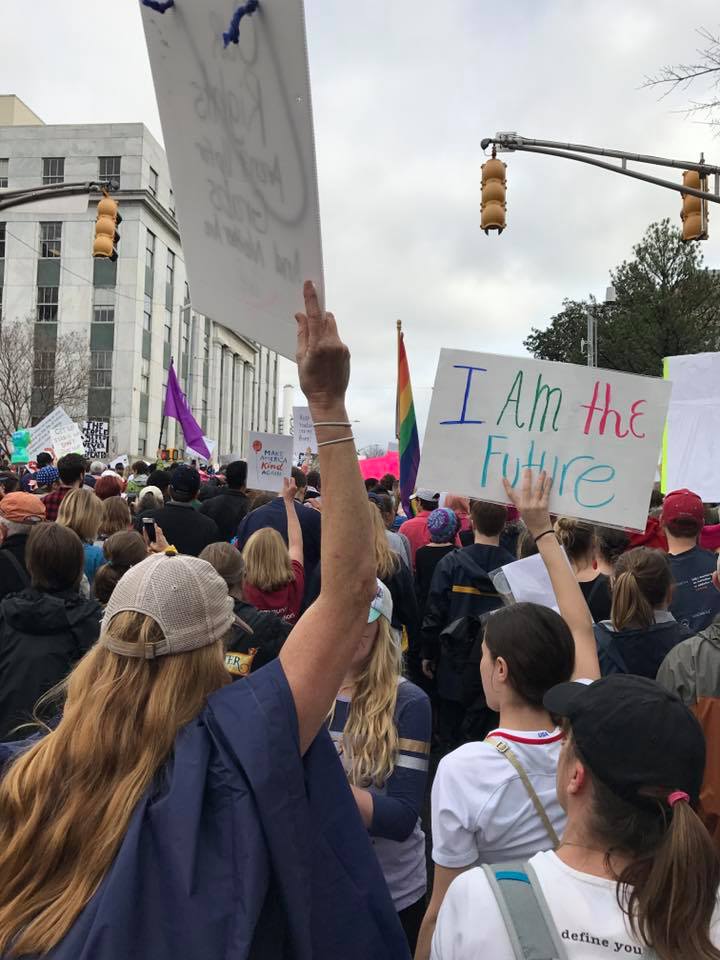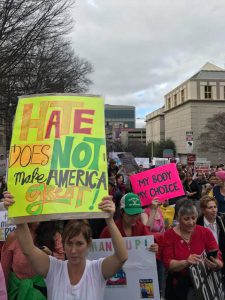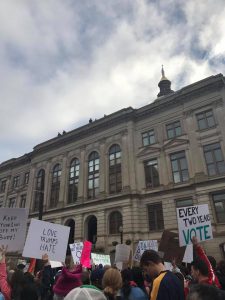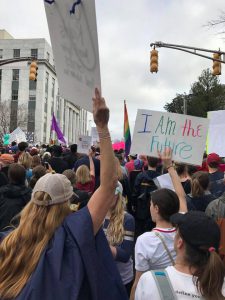
Georgia students march for their future
These Georgia students give you a first-hand look at what it was like to march for justice in Atlanta.
 People from across the state of Georgia flooded the streets of Atlanta on Saturday, January 21 for the Atlanta March for Social Justice and Women. The local demonstration was inspired by a larger national movement that all began with a single Facebook post, following the election.
People from across the state of Georgia flooded the streets of Atlanta on Saturday, January 21 for the Atlanta March for Social Justice and Women. The local demonstration was inspired by a larger national movement that all began with a single Facebook post, following the election.
“This is an INCLUSIVE march, and EVERYONE who supports women’s rights are welcome,” wrote the national organizers on Facebook. “PLEASE SHARE, we need to spread the word everywhere! And there are groups forming for EVERY STATE, so search for your local group as well!”
CNN says their call to action was heard across the country. From Los Angeles to Chicago to New York, communities rallied to the cause. In Atlanta, an expected 10,000 marchers grew into a crowd of 63,000, thanks in part to the huge response from students across the state.
Even with the huge response from marchers in Atlanta, other cities took up a majority of the limelight. Major publications such as CNN, The Washington Post and USAToday failed to recognize Atlanta having a march while mentioning the turn-outs in some places not even located in the United States.
When Bryn Bassett, a senior at Agnes Scott College, arrived in Atlanta with fellow students, staff, alumni, friends and family, it was pouring down rain, but that did not discourage her as she made her way to the Civil Rights Center. This was Bassett’s first public form of activism, and the cause was incredibly important to her.
“I’m attending a women’s college, Agnes Scott College, one that has a mission statement that calls all its students to think deeply, live honorably, and to engage in the challenges of our time,” said the 21-year old. “They’ve taught us to not accept the injustices and to be the change we wish to see in the world. This is my way of living out the mission. I’m engaging the challenges, and I’m living honorably by marching.”
Agnes Scott both encouraged and enabled Bassett to express her political views in a positive way and to empower herself by engaging in politics. For University of Georgia student Catherine Johnson, it was her mother that inspired her to stand up for what she believes is right.
“The decision to attend the march was easy for me because I can use my privilege to boost the voices of those less fortunate,” said the senior cognitive science major. “I support protecting the environment, reproductive rights, marriage equality, immigrants’ rights, access to healthcare, equal pay for equal work and civil rights for all people.”
While the many students who marched in Atlanta came for different reasons, they all shared similar hopes for the future.

“For me, the march symbolized the people of America coming together to say that we will stand up for each other,” said Johnson.
Bassett believes the march gave the state a starting point for engaging in peaceful activism.
“It was a message to the people of Georgia that there are others who think and feel the same way as you do,” said Bassett. “We hear you and will work with you, together to make sure that voice is heard.”
For Bassett, Johnson and the thousands of other students who marched in Atlanta, this march was about their future and the inclusion they hope to see there.
Becky Burgess, Conner Burks, Mary Carol Butterfield and Marli Collier



One thought on “Georgia students march for their future”
Employers will happily employ people who have “pulled themselves up by their bootstraps.” If the employers find that the people with certificates, degrees and credentials can’t perform the work they should be doing based on their training what then? Can the employer train them on the job? If not, what happens then? If you fire or demote the employee you need to have a good legal case if the employee has the privilege of calling in EEOC or a union.